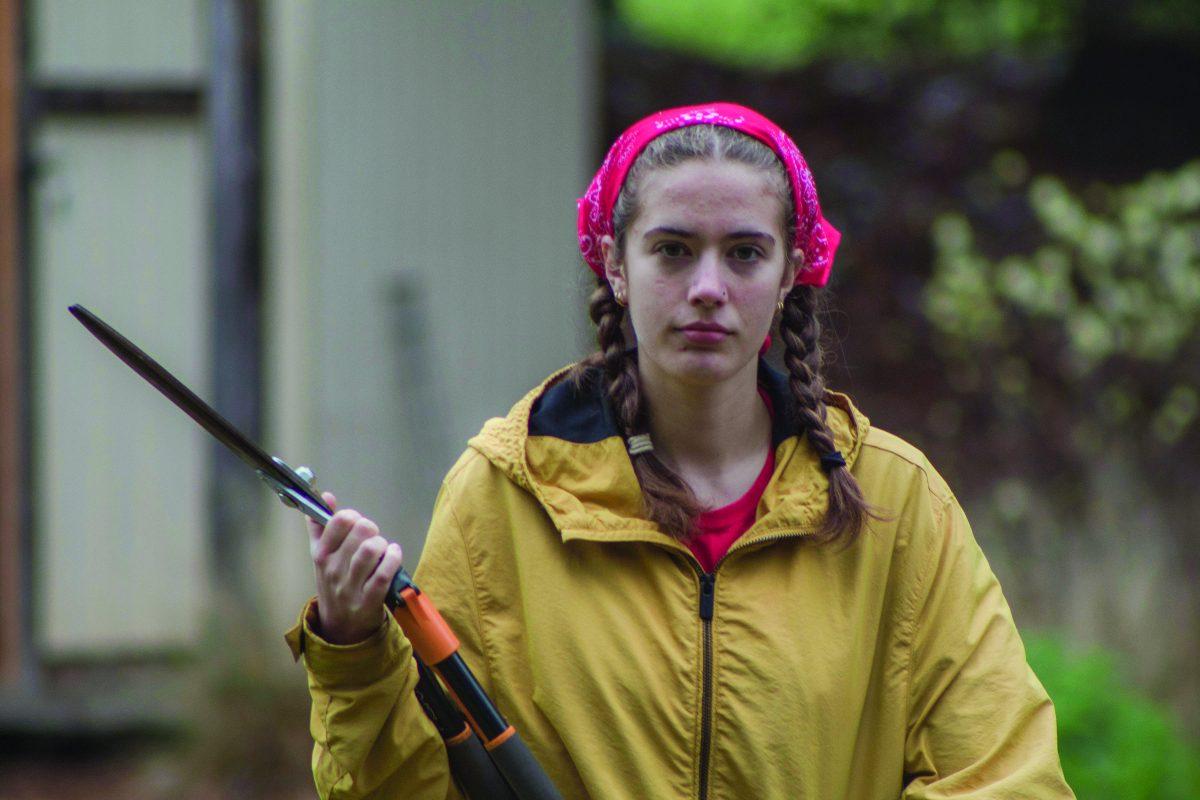Thirty-five percent of the world’s food crops depend on animal pollinators to reproduce each year, and 75% of flowering plants depend on animal pollinators.
That means one in every three bites of food humans eat exists because of a certain group of animals: those that visit flowers in search of food. This includes butterflies, moths, birds, bats and, most significantly, bees.
While driving or walking around a local neighborhood, you may notice a bumper sticker or yard sign demanding to “save the bees.” Bees and many other animal pollinators are facing challenges in the world due to habitat loss and environmental contaminants. Luckily, human intervention can help with the loss of these important animals, and a few groups at NC State are working to aid students’ knowledge about beekeeping.
NC State Apiculture studies the behavioral ecology of insect societies with a focus on queen honey bee behavior and reproduction to improve the health of colonies and their productivity. David Tarpy is a professor and extension specialist in the apiculture program.
“If there’s a silver lining with the problems that bees and beekeepers have been having in keeping their colonies healthy, it’s that there’s been a public education campaign realizing that pollinators and honey bees are important to our food supply,” Tarpy said. “Not just for providing honey, but for providing 100 different fruits, vegetables and healthy produce every single day — about a third of everything we eat.”
Although humans have industrialized a large portion of the environment, human intervention welcomes and supports bees to preserve their populations. Ecological farming ethically aids the declining populations.
“Since the introduction of parasitic mites and some of their diseases, one has to be an active beekeeper now to kind of manage them,” Tarpy said. “So you don’t see a lot of honeybee colonies living in the wild because they’ve kind of been wiped out because of these parasites. If you see honey bees foraging on some flowers, you can thank the neighboring beekeepers by keeping them healthy. It’s a much more active citizenry.”
The Beekeepers Club at NC State also plays a role in educating students about beekeeping. It provides information such as how to identify a queen bee, the anatomy of a bee and how to build a frame for a beehive.
Mason Randolph, a second year studying fisheries, wildlife and conservation biology, is the co-president of the Beekeepers Club.
“Beekeeping is very important for economic commercial crop production,” Randolph said. “Without pollination, you get a lot less variability in the genes and plants. Without genetic variability, plants are a lot more susceptible to disease or pests and things like that. Managing bees can be really helpful in producing genetically diverse crops, which also might lead to just more fruit yield, more crop yield, as well as just healthier fruit and vegetables.”
On March 23, the Beekeepers Club teamed up with NC State’s Sol Garden to build a bee hotel on campus. Bee hotels are a bee’s birdhouse — a structure for a solitary bee to nest safely in a bundle of hollow reeds, stems or wooden blocks with drilled holes.
“There’s a valuable community of people who keep bees, and it’s pretty easy to collaborate with a lot of other clubs on campus that are focused on sustainability,” Randolph said.
The Beekeepers Club is always looking for new members. It welcomes people of all skill levels because its overarching goal is to educate students about beekeeping.
“It takes a lot of people just to do regular checks,” Randolph said. “A lot of times, like, two or three people are required to help lift frames. If the queen bee is unmarked, it takes a lot of eyes sometimes to find her and make sure she’s doing okay.”
For centuries, humans have been using the honey produced by bees as a source of natural anti-inflammatories, antibacterial agents and antioxidants, as well as a delicious natural sweetener. Without honeybees, our access to honey will plummet. By supporting the local ecosystems and native plants, you can help your local honeybee population thrive.
“Though we can’t keep native bees, having the right mindset about native bees supports native plants and local ecosystems,” Randolph said. “And anytime you can support a local ecosystem and just kind of keep it in balance and kind of weigh out the harm that humans have done to the environment, it’s really helpful.”
One alteration to an ecosystem affects the whole population. Bee hotels and hives aid the environment on a large scale — local pollinators are needed in urban areas just as much as they are needed in rural areas — and the Beekeeping Club and classes at NC State help to provide students with a lens and skill to help this important insect population.














